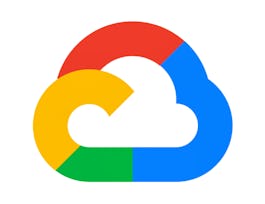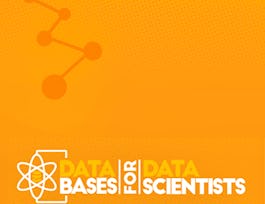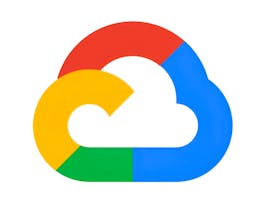This course consists of four modules covering some of the more in-depth and advanced areas of database technologies, followed by a look at the future of database software and where the industry is heading.


Advanced Topics and Future Trends in Database Technologies
This course is part of Databases for Data Scientists Specialization
Taught in English
Some content may not be translated


Instructors: Di Wu
3,600 already enrolled
Included with 
Course
(30 reviews)
Recommended experience
What you'll learn
In-depth and advanced areas of database technologies
The future of database software and where the industry is heading
Understand and differentiate four leading NoSQL implementations: MongoDB, Cassandra, Redis, Neo4j.
Skills you'll gain
Details to know

Add to your LinkedIn profile
5 quizzes
Course
(30 reviews)
Recommended experience
See how employees at top companies are mastering in-demand skills

Build your subject-matter expertise
- Learn new concepts from industry experts
- Gain a foundational understanding of a subject or tool
- Develop job-relevant skills with hands-on projects
- Earn a shareable career certificate


Earn a career certificate
Add this credential to your LinkedIn profile, resume, or CV
Share it on social media and in your performance review

There are 4 modules in this course
In this module we will take a deeper look into the internals of DBMS software to better understand how it works. We will examine the role of the DBA (Database Administrator), the Data Scientist, the Data Architect, and other career paths in the realm of database technologies. This module covers DBMS essentials such as concurrency management, backup & recovery, and transaction logging.
What's included
6 videos2 readings3 quizzes1 peer review1 discussion prompt
We have learned to design a Relational Database around the typical transactions or activities a business might have. However, in case we need to analyze data, rather than collect data, we need to create a database for the subject of interest to support decision making. In this module, we are going to learn a different perspective of organizing the data, Data Warehouse, or Online Analytical Processing.
What's included
5 videos1 peer review
We are in the era of data explosion. While relational databases are still widely used, we are having new problems to deal with data that is different than the one we have been organizing. This new type of data, with 10 V's in the definition, is called Big Data. We are going to explore the definitions, the challenges, and the architecture of the Big Data in this module.
What's included
4 videos1 peer review
Although relational database software has been in use for decades, relational database systems still command a huge share of the database software marketplace. However, with the more recent explosion of Big Data, relational systems are struggling to keep up. Big Data has opened the door for non-relational database solutions ("NoSQL") to capture marketshare from relational systems. In this module we will take a deeper look into the most popular NoSQL database technologies.
What's included
6 videos2 quizzes1 peer review
Instructors

Offered by
Recommended if you're interested in Data Management

Google Cloud

Google Cloud

University of Colorado Boulder
Get a head start on your degree
This course is part of the following degree programs offered by University of Colorado Boulder. If you are admitted and enroll, your coursework can count toward your degree learning and your progress can transfer with you.
Why people choose Coursera for their career




Learner reviews
Showing 3 of 30
30 reviews
- 5 stars
73.33%
- 4 stars
23.33%
- 3 stars
3.33%
- 2 stars
0%
- 1 star
0%
New to Data Management? Start here.

Open new doors with Coursera Plus
Unlimited access to 7,000+ world-class courses, hands-on projects, and job-ready certificate programs - all included in your subscription
Advance your career with an online degree
Earn a degree from world-class universities - 100% online
Join over 3,400 global companies that choose Coursera for Business
Upskill your employees to excel in the digital economy
Frequently asked questions
Access to lectures and assignments depends on your type of enrollment. If you take a course in audit mode, you will be able to see most course materials for free. To access graded assignments and to earn a Certificate, you will need to purchase the Certificate experience, during or after your audit. If you don't see the audit option:
The course may not offer an audit option. You can try a Free Trial instead, or apply for Financial Aid.
The course may offer 'Full Course, No Certificate' instead. This option lets you see all course materials, submit required assessments, and get a final grade. This also means that you will not be able to purchase a Certificate experience.
When you enroll in the course, you get access to all of the courses in the Specialization, and you earn a certificate when you complete the work. Your electronic Certificate will be added to your Accomplishments page - from there, you can print your Certificate or add it to your LinkedIn profile. If you only want to read and view the course content, you can audit the course for free.
If you subscribed, you get a 7-day free trial during which you can cancel at no penalty. After that, we don’t give refunds, but you can cancel your subscription at any time. See our full refund policy.


